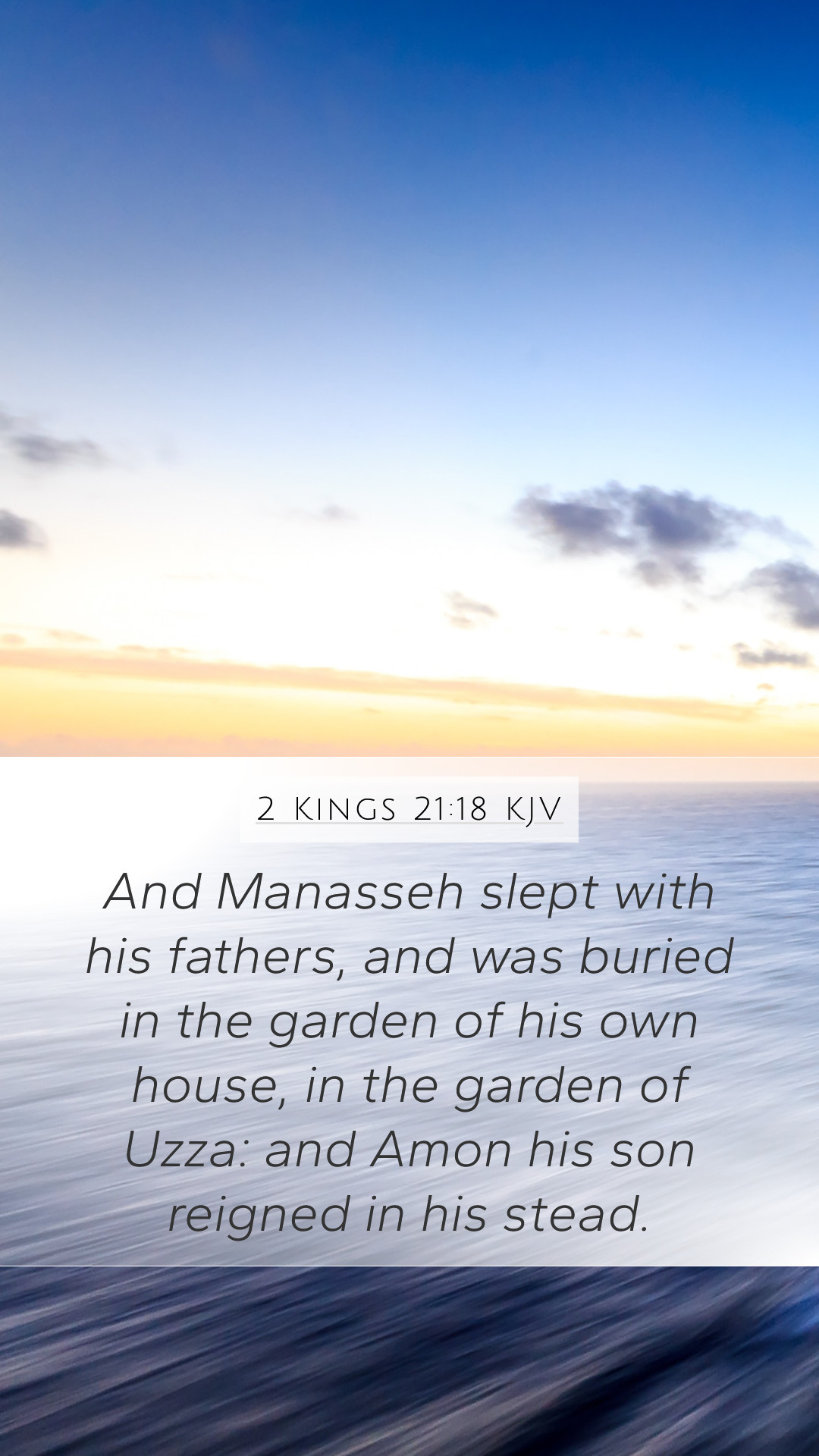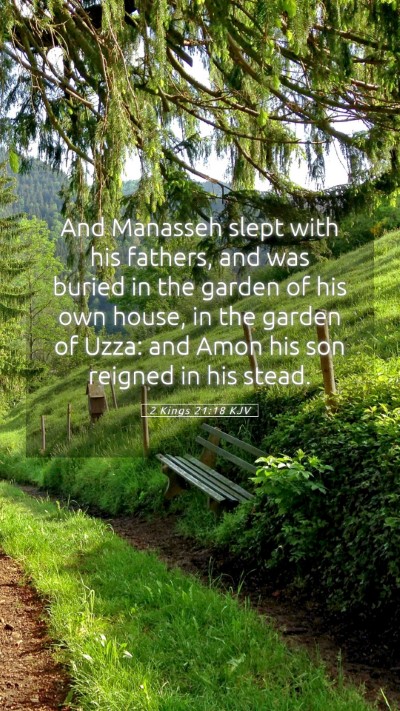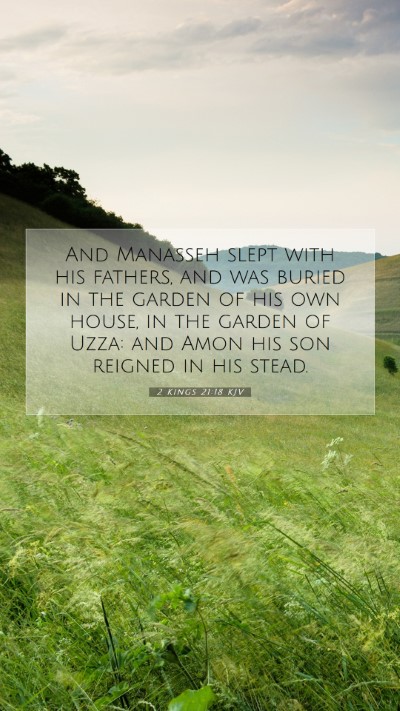Understanding 2 Kings 21:18 - A Combined Commentary
In this passage, the narrative focuses on the death of King Manasseh and the implications of his reign. As we delve into the Bible verse meaning of 2 Kings 21:18, various public domain commentaries provide insights that illuminate our understanding.
Verse Context
The full context of 2 Kings 21:18 reveals a period marked by idolatry and turning away from God. King Manasseh, despite being purified later in life, led the people into deep sinfulness. This serves as a pivotal background for interpreting the significance of his death and its aftermath.
Verse Text
"And Manasseh slept with his fathers, and was buried in the garden of his own house, in the garden of Uzza: and Amon his son reigned in his stead."
Verse Interpretation
According to Matthew Henry's Commentary:
-
The death of Manasseh indicates the end of a reign filled with idol worship and rebellion against God. His eventual humility before God at the end of his life stands in stark contrast to his earlier years of defiance.
-
Burial in his own garden suggests a lack of honor in death, representing how his sinful life overshadowed any moments of repentance he may have experienced.
Albert Barnes' Notes on the Bible further elaborates:
-
The name "Amon," which means "faithful," juxtaposes the legacy of wickedness left by Manasseh. This transition indicates a failure to learn from the past, with the new king likely continuing in the sinful patterns established by Manasseh.
-
The garden of Uzza as his burial site can symbolize the isolation inherent in his idolatrous choices, removing him from the royal burial grounds—a significant detail reflecting the disregard for God's commandments during his rule.
Adam Clarke's Commentary provides additional insights:
-
Describing Manasseh’s reign as one filled with transgressions, Clarke points out that his death did not bring immediate reform, showcasing the enduring consequences of sin upon future generations.
-
The mention of the "garden" is significant, as it is often associated with life and fertility; however, for Manasseh, it becomes a metaphor for spiritual barrenness due to his wrong choices.
Applying the Insights
Reflecting on this verse allows us to consider the application of biblical teachings to our daily lives. Manasseh's story challenges readers to reflect on the importance of leadership, repentance, and the legacy we leave behind. It emphasizes that:
-
Repentance is key: No matter how far one strays, God's grace is available to those who genuinely turn back to Him.
-
Consequences matter: The decisions we make impact not just our lives but the generations that follow.
-
Spiritual accountability: Leaders, whether in the family, church, or community, bear a heavy responsibility to lead faithfully and righteously.
Related Scripture References
- 2 Chronicles 33:9-10: Highlights the warnings given to Manasseh and the consequences of his actions.
- Jeremiah 15:4: Refers to the lasting effects of Manasseh’s sins upon Judah.
- 2 Kings 21:16: Discusses the shedding of innocent blood during Manasseh's reign, reinforcing the theme of judgment that follows sin.
Conclusion
In summary, the Bible verse explanation of 2 Kings 21:18 offers profound insights into the complexities of leadership, sin, grace, and justice. The combined commentaries we have explored emphasize that while the legacy of sin can be deep, the doors of repentance remain open. This passage serves to remind us all of the importance of living a life that honors God and serves as a positive example for others. By reflecting on our actions and their potential impact, we participate in a deeper understanding of Scripture and our role within it.


